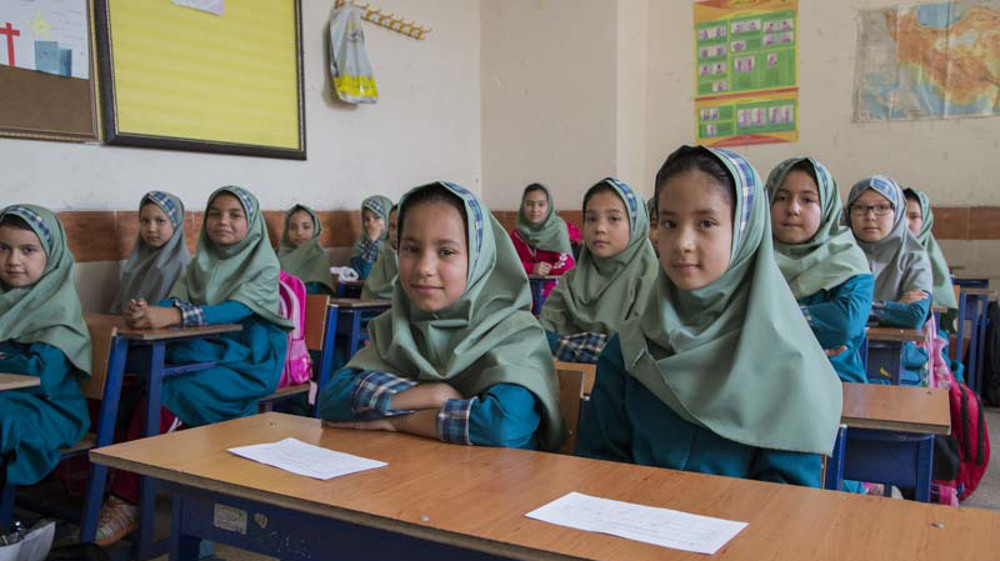AhlulBayt News Agency: Regardless of the fact that the Islamic Republic of Iran is suffering from cruel and illegal sanctions, the Iranians continue hosting millions of migrants and asylum seekers.
Iran is among the countries, which have welcomed the most refugees, but international organizations have kept mute when it comes to imposing sanctions on the country.
Following the fall of the former government in Afghanistan over the past year, the number of Afghan refugees in Iran exceeded around five million people. Although, unofficial reports say that the real number of Afghan asylum seekers in Iran is more than what has been registered on international lists.
The United Nations High Commissioner for Refugees announced that Iran has turned into the fourth country with the highest number of refugees throughout the world, but counting the real number would make the Islamic nation as the first host in terms of the number of asylum seekers.
In the last four decades, Iran provided the Afghan refugees with opportunities for residence, jobs, healthcare, and education, while the country has been under different pressures such as the eight-year Iran-Iraq war, constant sanctions, and economic woes.
Filippo Grandi, the commissioner of the United Nations High Commissioner for Refugees, is going to visit South Korea in order to urge Seoul to aid for refugee crises, as the south Asian country hosts only 300 Afghan refugees, but the Islamic Republic of Iran hosts millions of asylum seekers and suffers from cruel sanctions.
Iran has also aided the neighboring country on different occasions such as earthquakes and other catastrophes.
Leader of the Islamic Revolution Ayatollah Seyyed Ali Khamenei underlined that asylum seekers should be provided with educational opportunities in Iran’s schools and universities.
Iran has had good cooperation with international entities and countries such as India in the vaccination of asylum seekers amid the COVID-19 pandemic.
The United Nations Secretary-General Antonio Guterres appreciated the Iranians’ efforts such as holding a meeting of neighboring states of Afghanistan to help the war-stricken country.
Despite the fact that the international organizations expressed gratitude to Iran’s humanitarian efforts, they have shown nothing tangible and practical in supporting the Islamic country in respect of hosting millions of refugees amid the situation that the illegal sanctions get in the way of importing medicines and medical equipment.
The existing government in Afghanistan is expected to provide the Afghan people with job opportunities and welfare in order to pave the way for the return of millions of Afghan refugees to their homeland.
/129
Iran is among the countries, which have welcomed the most refugees, but international organizations have kept mute when it comes to imposing sanctions on the country.
Following the fall of the former government in Afghanistan over the past year, the number of Afghan refugees in Iran exceeded around five million people. Although, unofficial reports say that the real number of Afghan asylum seekers in Iran is more than what has been registered on international lists.
The United Nations High Commissioner for Refugees announced that Iran has turned into the fourth country with the highest number of refugees throughout the world, but counting the real number would make the Islamic nation as the first host in terms of the number of asylum seekers.
In the last four decades, Iran provided the Afghan refugees with opportunities for residence, jobs, healthcare, and education, while the country has been under different pressures such as the eight-year Iran-Iraq war, constant sanctions, and economic woes.
Filippo Grandi, the commissioner of the United Nations High Commissioner for Refugees, is going to visit South Korea in order to urge Seoul to aid for refugee crises, as the south Asian country hosts only 300 Afghan refugees, but the Islamic Republic of Iran hosts millions of asylum seekers and suffers from cruel sanctions.
Iran has also aided the neighboring country on different occasions such as earthquakes and other catastrophes.
Leader of the Islamic Revolution Ayatollah Seyyed Ali Khamenei underlined that asylum seekers should be provided with educational opportunities in Iran’s schools and universities.
Iran has had good cooperation with international entities and countries such as India in the vaccination of asylum seekers amid the COVID-19 pandemic.
The United Nations Secretary-General Antonio Guterres appreciated the Iranians’ efforts such as holding a meeting of neighboring states of Afghanistan to help the war-stricken country.
Despite the fact that the international organizations expressed gratitude to Iran’s humanitarian efforts, they have shown nothing tangible and practical in supporting the Islamic country in respect of hosting millions of refugees amid the situation that the illegal sanctions get in the way of importing medicines and medical equipment.
The existing government in Afghanistan is expected to provide the Afghan people with job opportunities and welfare in order to pave the way for the return of millions of Afghan refugees to their homeland.
/129

